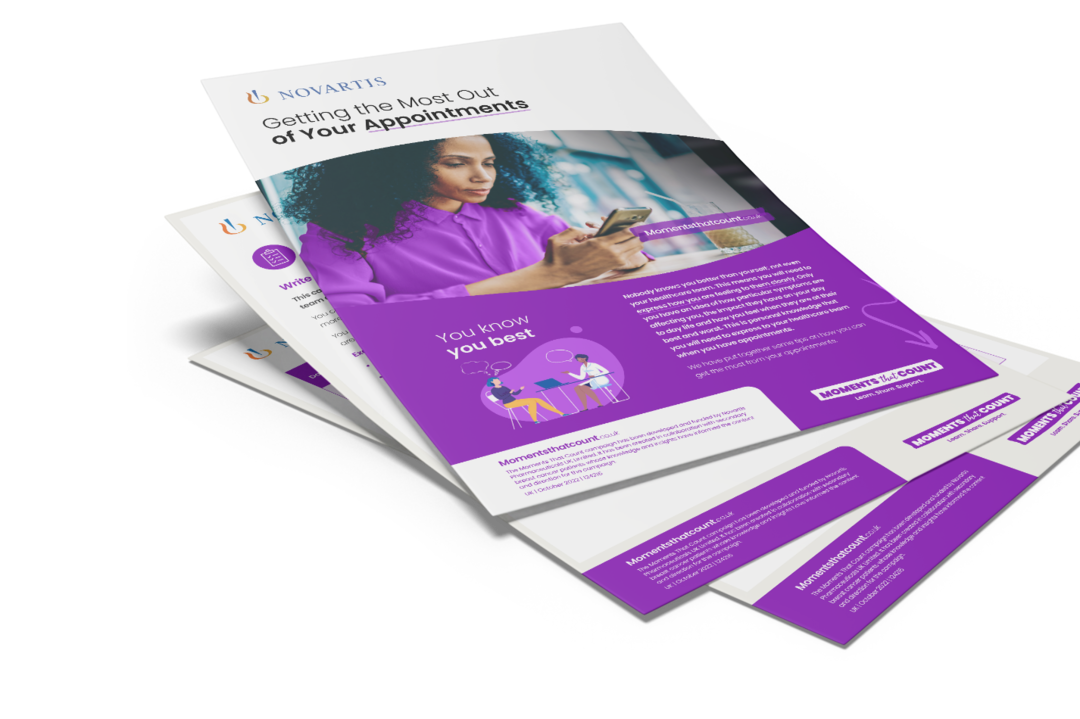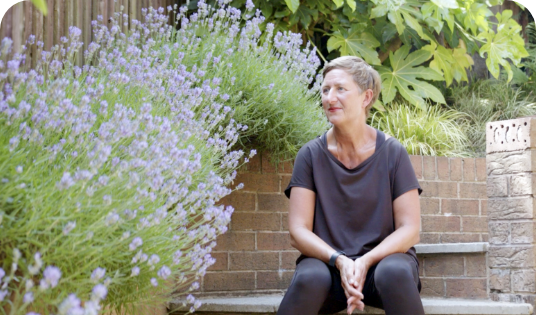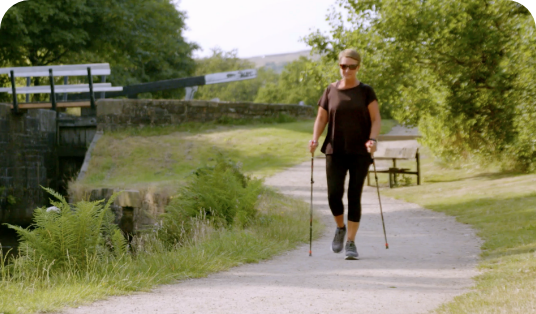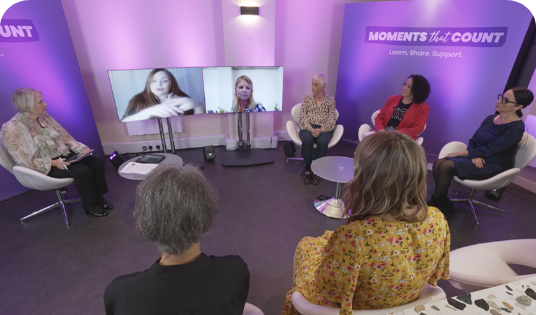Planning ahead with secondary breast cancer
We can help you find support for your advanced care planning
Moments That Count has been developed and funded by Novartis Pharmaceuticals UK Limited and is intended for a UK general public audience.
We can help you find support for your advanced care planning
End of life planning with secondary breast cancer allows people involved in your healthcare to understand how you would like to be cared for if you are no longer able to make decisions for yourself. End of life planning is important with regards to your family and personal finances too. Writing down your wishes is a great way of ensuring they are carried out if you can no longer voice them.
Many people take the time during or after their treatment to plan ahead. This is called advance care planning. There are a few ways you can plan ahead with secondary breast cancer and several legal documents you can use too. Your healthcare team will have more information about these.
It's a good idea to plan ahead while you are still well enough to do so. Writing down your preferences and wishes is a good place to start. Below are a few things you can begin thinking about:
It can also be beneficial to appoint somebody who could make decisions on your behalf, if you find you're unable to. This is called a power of attorney, and they can make decisions about your property and finances, or your health and welfare.
You can talk about advance care planning with your GP, specialist doctor or nurse, or palliative care team. It can also be helpful to speak with family and friends, or patient support groups to gather advice.

Alistair provides tips on how to plan for managing a long-term condition, reinforcing that a lapse is never a relapse - it is an opportunity to learn and reflect.
Each person living with breast cancer has a unique story to tell. Sometimes, the stories we read in the news or online do not reflect the journey many people living with primary or secondary breast cancer have experienced.
The Moments That Count breast cancer campaign hopes to raise awareness of what it's truly like to live with this disease and features contributions from some inspirational women with breast cancer who have shared their very own moments that count from their journeys.
Your healthcare team is your best resource throughout your treatment. Talk openly and often with them about your doubts, questions and concerns. We have developed a guide to support you in having these conversations with some tips to help you find the information you need.

Learn more about...

Coping with breast cancer
There is lots of help out there for you and your support group. You are not alone.

Quality of life with breast cancer
Find out what you can do in your daily life to maintain a healthy body and mind.

Crucial conversations in breast cancer
Watch our panel discuss the importance of two-way dialogue in breast cancer care.
UK | October 2025 | 124223-2
Please take a moment to complete the following - it’s completely anonymous so none of your personal data is stored. All responses will be pooled together and the collective results will be studied by Novartis so we can continually improve our information and resources for patients.
Moments That Count has been developed and funded by Novartis Pharmaceuticals UK Limited. It has been created in collaboration with secondary breast cancer patients whose knowledge and insights have informed the content and direction for the campaign.
This website is part of a programme that is funded by Novartis Pharmaceuticals UK Limited. Novartis Pharmaceuticals UK Limited is a private limited liability company registered in England and Wales under number 119006. Registered office 2nd Floor, The WestWorks Building, White City Place, 195 Wood Lane, London, W12 7FQ. Use of this website is governed by our Terms of Use and the Cookies and Privacy Policy.
Reporting side-effects
If you get side effects with any medication you are taking, talk to your doctor, pharmacist or nurse. This includes any possible side effects not listed in the information leaflet that comes in the pack. You can report side effects via the Yellow Card Scheme at www.mhra.gov.uk/yellowcard. By reporting side effects, you can help provide more information on the safety of your medication.
©2024 Novartis Pharmaceuticals UK Ltd - UK | April 2025 | 124182-5 This site is intended for a UK general public audience.
